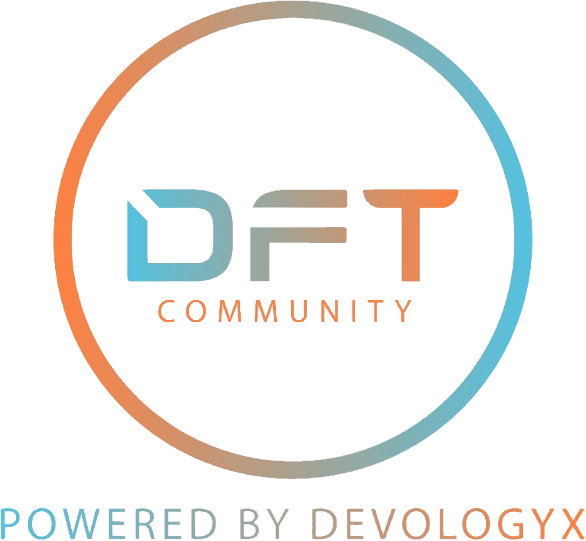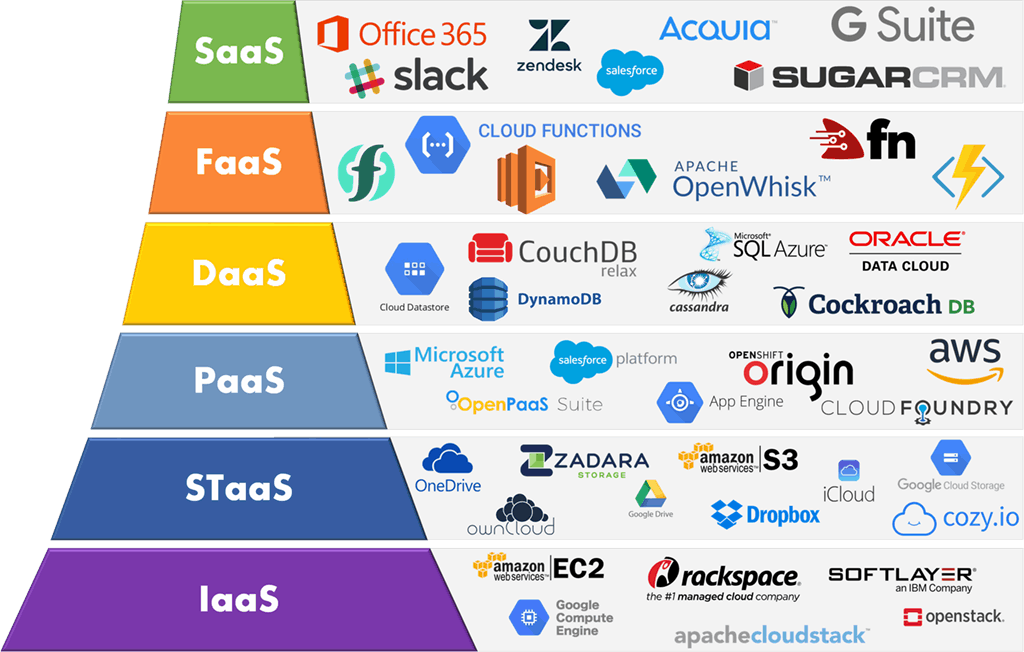Cloud Computing is the on-demand delivery and access of computing resources via the internet. These resources include; virtual servers, development tools, data storage, databases, processing power, networking, analytics, artificial intelligence and software applications. By outsourcing these resources, companies access the computational assets they require when they need them without needing to purchase and maintain a physical, on-premise IT infrastructure. This provides flexible resources, faster innovation, and economies of scale. These resources are hosted at a remote data centre managed by a cloud services provider (or CSP). The CSP makes these resources available for a monthly subscription fee and bills them according to usage.
Amazon Web Services is currently one of the most evolving, all-inclusive and widely adopted cloud platforms. It offers over 200 services from data centres globally. Groups such as government agencies, education institutions, non-profits, and private organisations use AWS tools for computing power, database storage, and content delivery services. Its services include Software as a Service (SaaS), Platform as a Service (PaaS), and Infrastructure as a Service (IaaS).
Much as AWS is widely adopted, it does make it perfect. Developers are now looking for alternatives to replace AWS because of its pricing, complexity and Amazon’s EC2 Limits.
Here is a list of some cloud computing platforms that have the potential and ability to replace Amazon Web Services in 2023 and 2024.
Google Cloud Platform
Google Cloud Platform is considered a good substitute for Amazon Web Services. GCP offers more cloud services than the Amazon Web Service platform. GCP enables developers to build, test, and deploy applications on its distributed and scalable infrastructure while utilising the service’s security, data management, analytics, and artificial intelligence (AI) capabilities. The most-outstanding advantage GCP has over AWS is: it was developed using the same technology that runs Google’s search engine, browser, Gmail, and other services. This makes integration with Android mobile operating systems more accessible; this is the same reason it’s a fast and secure platform for mobile app developers.
Features
- Machine Learning and Artificial Intelligence
- Data Analytics
- Hybrid and Multi-cloud
- Networking
- Security
- Developer tools
- Internet of Things
- Databases
IBM Cloud
IBM Cloud is a full-stack cloud platform that designs, builds and manages public, private and hybrid environments for its customers. The IBM cloud includes IaaS, SaaS, and PaaS services like other cloud service providers. One of the most outstanding aspects of IBM Cloud is the security and enhanced performance that comes with its Bare Metal Servers. Apart from speeding up applications’ performances, the bare metal servers also boost input and output operations and stabilise the read-write and networking performances. IBM Cloud offers each client their own server, not the virtual server, which implies no dependency. Try the IBM Cloud Lite to get a feel of its cloud service.
Features
- Deploying Blockchain technology-based solutions.
- Implementing strong cloud security to the core.
- Implementing a pay-as-you-use pricing approach.
- Both public and private nodes are available.
- Local and SAN storage options are available.
- Fast performance
- Hybrid cloud capabilities Global data centres
- Building various types of databases, from SQL to NoSQL
- IBM cloud services can be used by developers for programming and deploying many kinds of applications either on the public cloud or on-premises.
- Supports most popular programming languages and scripts, including Python, PHP, Java, Node.js, etc.
- Building various types of databases, from SQL to NoSQL.
- Creating AI and machine learning solutions, robotic visual recognition, and natural language processing APIs.
Kamatera
Kamatera is a global cloud services platform provider providing enterprise-grade cloud infrastructure products to organisations of all types and sizes. Cloud servers built by Kmatera are similar to physical servers. Kamatera offers two essential cloud services: Cloud Infrastructure and Managed Cloud services. The former deals with hosting, networking and security, while the latter approaches complete management of digital assets. The Kamatera cloud infrastructure is distributed across several global, state-of-the-art, purpose-built data centres, making it easier for clients to instantly launch a new server from any of these locations. Clients who sign up with this company can use Kamatera’s business solutions for startups, SaaS developers, and web or app developers to offer their services to their users. It is highly flexible and can be customised to fit users’ needs. Pricing is based on the pay-as-you-use model, so you don’t pay for services you don’t use. Kamatera has developed a range of scalable, flexible cloud infrastructure products, including Cloud Servers, Cloud Block Storage, Private Cloud Networks, Cloud Load Balancer, Cloud Firewalls, Fully Managed Cloud and more.
Features
- Fully Managed Cloud
- Cloud Migration
- Cloud Consulting
- Disaster Recovery
- Cloud Hosting
- VPS Hosting
- One Portal to Control all Servers
- Virtual machine backup and monitoring
- Multi-cloud management
- Encryption
- Version control
- Flexible, fast and reliable business solutions.
- Cloud private network.
- Flexible Billing options – Per Month or Per Day.
- 365 days 24/7 Tech Human Support.
- 30-Day Free Trial.
Microsoft Azure
Microsoft Azure is a public cloud platform that offers cloud products and services designed to help you bring new development, data storage, service management and hosting life solutions. To solve your challenges. Microsoft Azure offers virtual machines and storage accounts that are durable and highly available. It has scalable cloud storage and functional cloud servers as well. Azure’s SQL database offers managed and clever SQL in the cloud application. Its services include platform as a service (PaaS), infrastructure as a service (IaaS), and managed database service capabilities. Intelligent and secure Azure SQL database services make it easy to: migrate your SQL workloads with SQL Server on Azure Virtual Machines. Modernise your existing applications or enjoy hybrid flexibility with Azure SQL Managed Instance and support modern cloud applications with Azure SQL Database. Azure is dedicated to open source and supporting all programming languages and frameworks. Apart from the businesses, .NET application developers and C# programmers can make a fluent and seamless move into the cloud using this service. Meanwhile, administrators – of both networks and databases – also find integrating and expanding their infrastructures easy simply because they are already familiar with the configurations.
Features
- High-performance, highly durable block storage.
- Scalable, secure data lake for high-performance analytics.
- Simple, fast and serverless enterprise-grade cloud file shares.
- Enterprise-grade Azure file shares powered by NetApp.
- Simplify data protection with built-in backup management at scale.
- Offers consistency across clouds with familiar tools and resources
- Allow you to scale your IT resources up and down according to your business needs.
- Fast SSD-backed scalable and redundant storage.
- 30 days free trial.
- Easy to adapt.
DigitalOcean
DigitalOcean is the cloud service provider where developers seek cloud servers to assist them in deploying and scaling applications designed to run simultaneously on multiple connected devices. DigitalOcean has Linux-based virtual machines that run on top of a virtualised hardware environment known as “Droplets.” Each Droplet is an autonomous server that can be configured to become part of a chain of connected platforms, depending on requirements. DigitalOcean’s packages are predefined and price, meaning there are no hidden costs that the users won’t know about – what you sign up for is what you get and pay for. Other features available include security, storage, and monitoring on a professional level with a sturdy and reliable infrastructure to hold it all up.
Features
- Storage Limits.
- Bandwidth Allowance.
- Control Panel Integration.
- CMS Support.
- Web Framework Support.
- E-Commerce Integration.
- Database Support.
- Security Tools.
Conclusion
You must resolutely consider the aforementioned options if you are strongly considering replacing or moving to another cloud platform from Amazon Web Services. Although Cloud platforms such as Microsoft Azure, DigitalOcean, Kamatera or Google Cloud do not have the same features as Amazon Web Services, they can fully replace AWS and do the job correctly.


